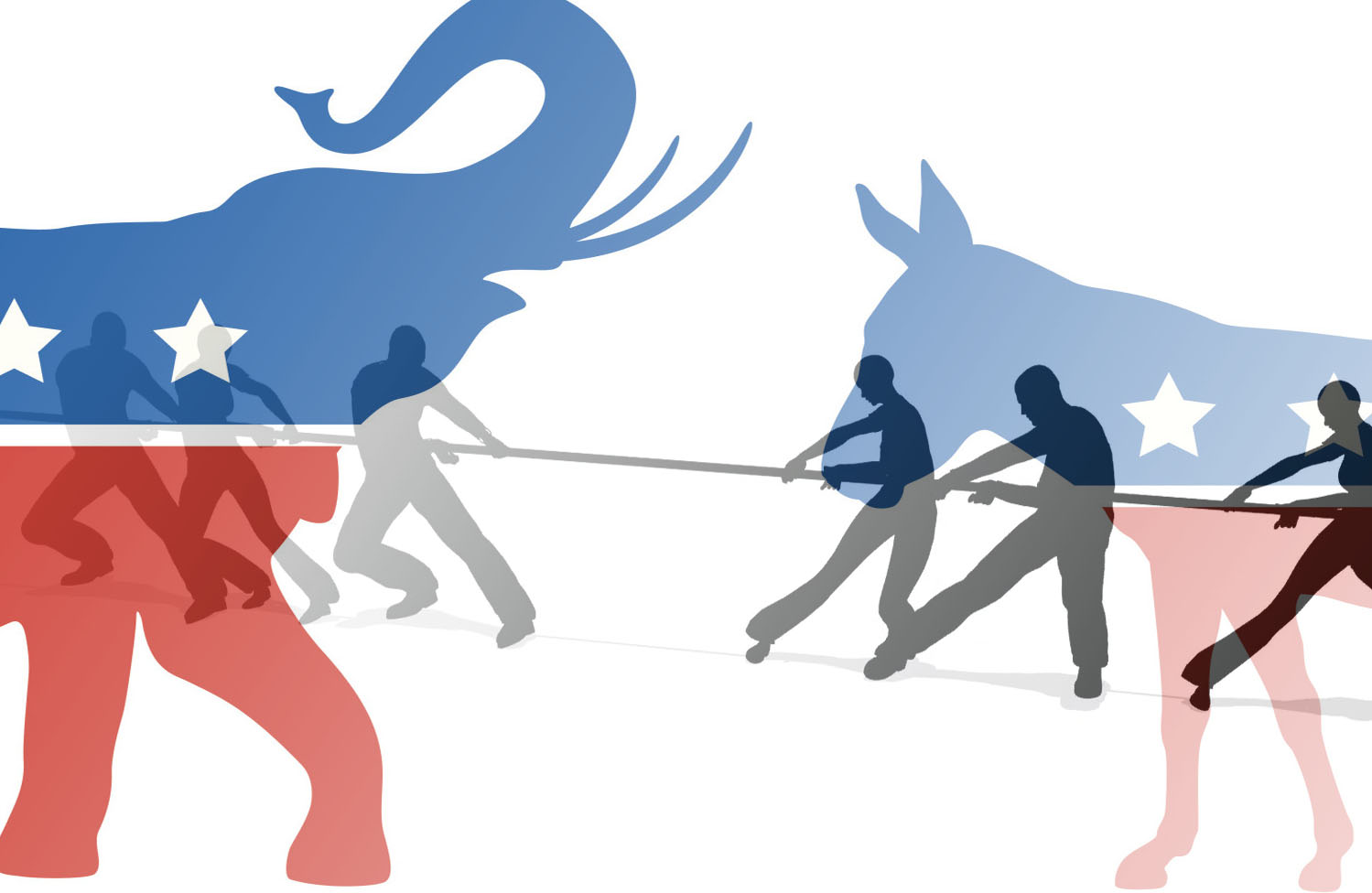There was, at one point, a time where America’s two-party system was thought to be as revolutionary as the war which shared the name of the previous adjective. Whereas other countries’ democracies were based in parliamentary systems with certain parties belonging to ideologically convoluted parties labor and unionist, America kept it simple. Whichever team has more points, they have greater control of the nation’s functionality. It was believed, then, that any candidate who thought themselves fitting for American politics would have to appeal to all sides, or at least a greater majority of the electorate, for this individual to win an election. It would seem that one such politician has laid waste to this theory following his rise to becoming President of the United States. Back in the ’50s, a report was published, “Toward A More Responsible Two-Party System,” the contents of which warned:
“If the two parties do not develop alternative programs that can be executed, the voter’s frustration and the mounting ambiguities of national policy might also set in motion more extreme tendencies to the political left and the political right. This, again, would present a condition to which neither our political institutions nor our civic habits are adapted. Once a deep political cleavage develops between opposing groups, each group naturally works to keep it deep. Such groups may gravitate beyond the confines of the American system of government and its democratic institutions.”
-“Toward A More Responsible Two-Party System”
While I’ve always firmly believed that the past informs the present, this is just eerie, and downright terrifyingly accurate. Our political system is dampened by the sheer fact that the “tyranny of the majority” rules what, and how, legislation gets passed by Congress, or any other major political decision for that matter. Take, for example, the current state of our government, partially shut down because of a political stalemate between the Democratic leadership and President Trump. For those who’ve managed to keep their heads in the sand, come up for air for a brief moment and check in with the world. President Trump refuses to bring the federal government back online until his demands for $5 billion to fund a wall along the US-Mexico border are met. Vice President Mike Pence, Trump’s federal wingman, told the media on Thursday that “if there’s no wall, there’s no deal.” Pence continued, “we are here to make a deal, but it’s a deal that’s going to result in achieving real gains…We will have no deal without a wall.”
To my knowledge, negotiations tend to be most effective when both involved parties are willing to waver tenets of what they want, one exchange for finding common ground. As it presently stands, I’m not sure how this will be accomplished between President Trump and the newly blue House of Representatives. The newly minted Democratic-majority of the Legislative branch of government pushed through several spending bills on Thursday to attempt to reopen the federal government, according to several media outlets. In retaliation of these bills, congressional Republicans naturally lambasted the move, and the White House went so far as to play the presidential veto card, as the partial shutdown enters its third week this coming Monday. Referencing, once more, the report conducted by the American Political Science Association, it states that the survival of the two-party system, “even if only one of the diametrically opposite parties comes to flirt with unconstitutional means and ends,” would be seriously threatened.
In no way, am I blaming President Trump or the Republican Party for the state of the political climate in the US, in fact, I am suggesting the exact opposite. It takes two entities to tango, and neither the Democrats nor Republicans are willing to set aside their beliefs and agree to draft legislation that wholly benefits the country. Having recognized that, the fate of the government shutdown rests solely in President Trump’s need to eventually give up on his wall project. If no agreement can be made, we’ll remain exactly where we are present; in a zero-sum game.





